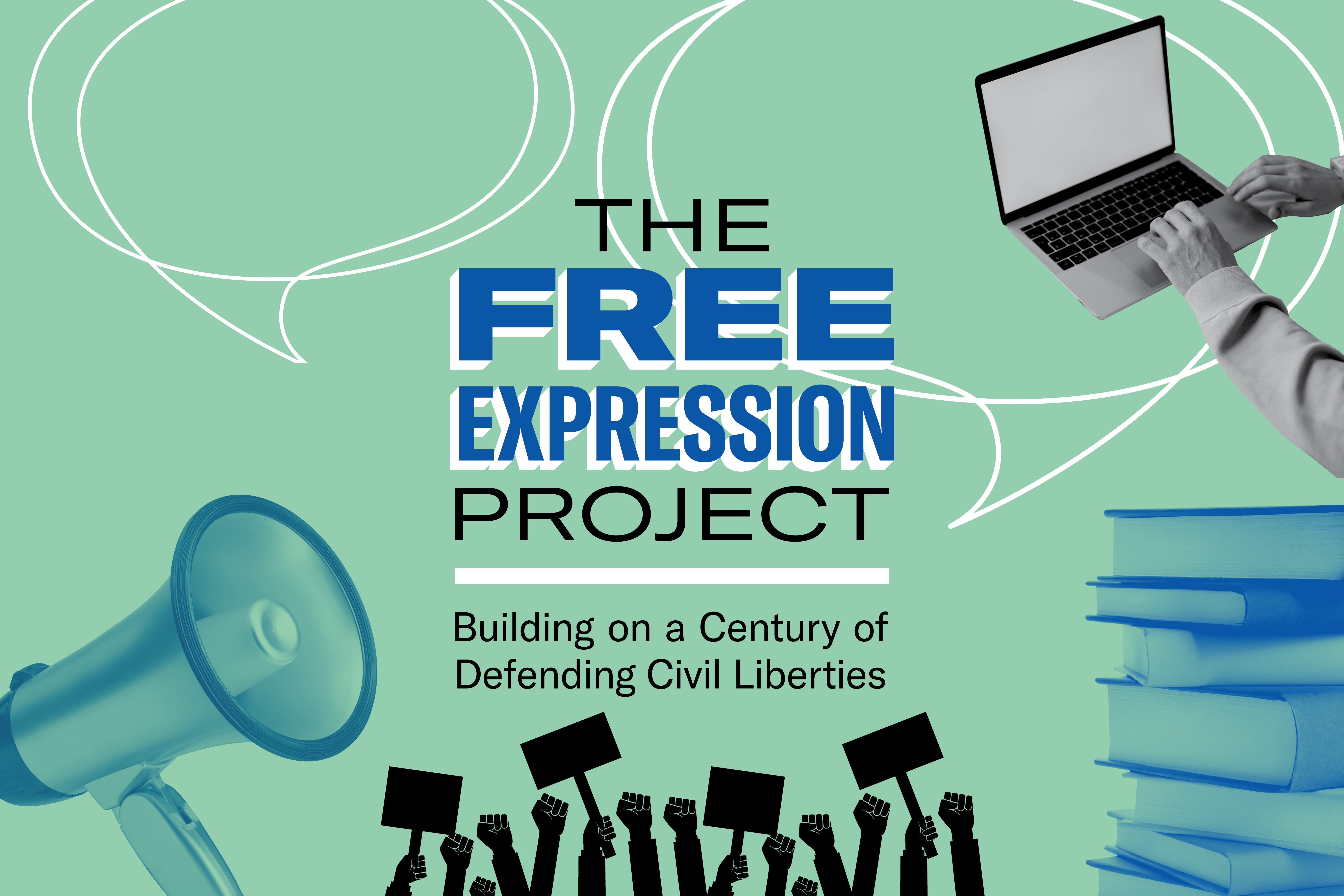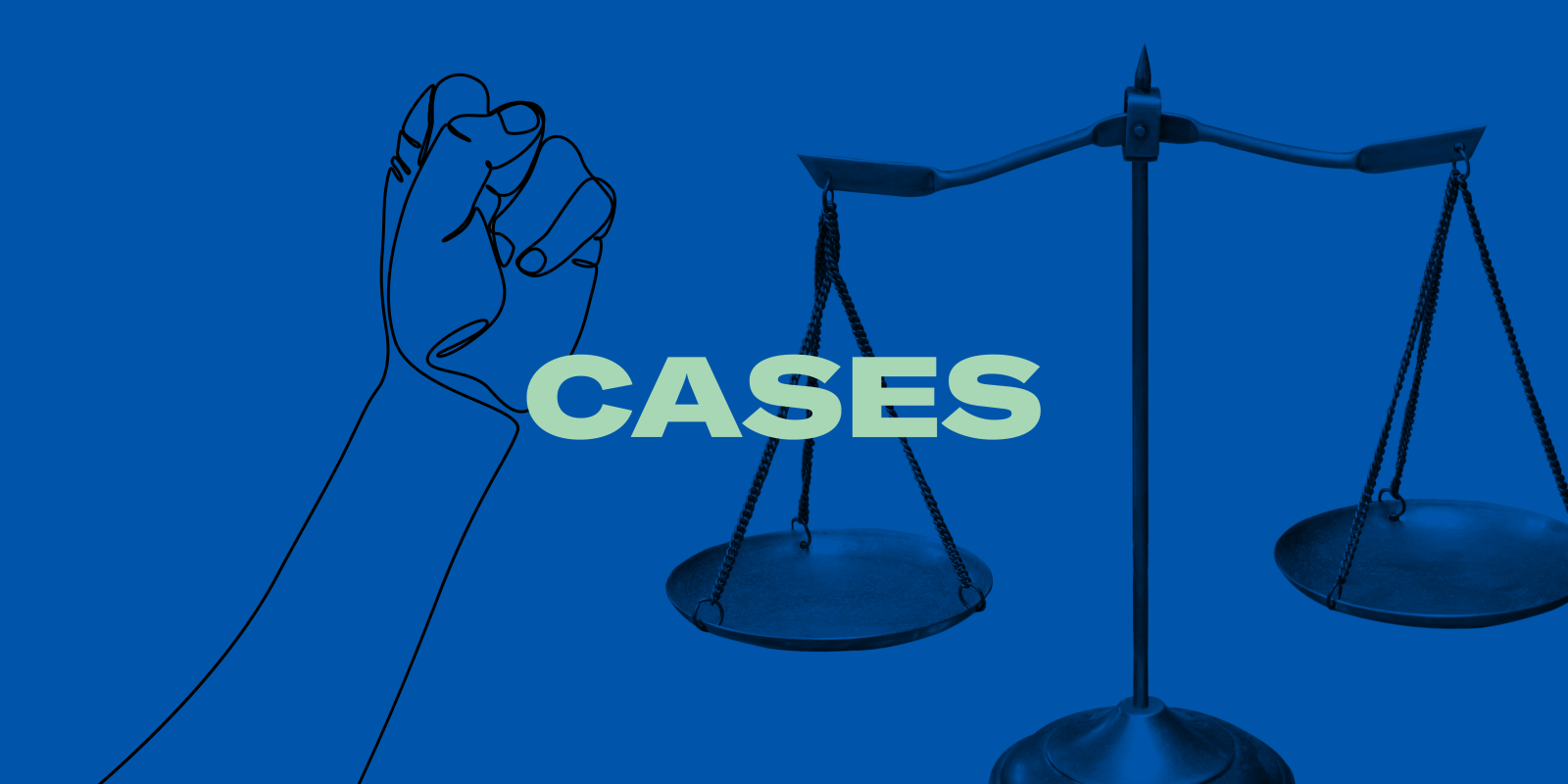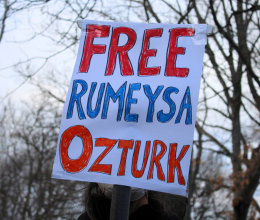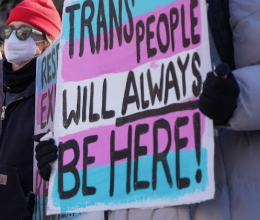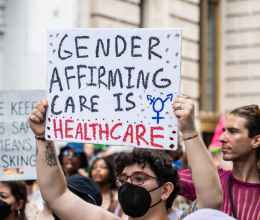February 2025, Letter to Quincy officials: The ACLU of Massachusetts wrote to Quincy officials explaining that the plan to erect two statues of Catholic saints outside of the City's new public safety building violates the principle of separation of church and state enshrined in the Massachusetts and United States Constitutions.
December 2024, Open Letter to Massachusetts Institutions of Higher Education Regarding Campus Speech Policies: The ACLU of Massachusetts wrote an open letter to Massachusetts college and university leaders emphasizing their duty to protect free expression on their campuses. The new letter follows an ACLU analysis of more than a dozen student speech policies after several colleges and universities changed their policies in the wake of year-long student protests regarding Palestine and Israel, and before semesters resume during the new presidential administration.
December 2024, to City of Worcester officials: The ACLU of Massachusetts wrote a letter to Worcester officials regarding the City's recent decision to exclude a petition calling for a ceasefire in Gaza from the City Council's agenda. In our letter, we argue that the exclusion of the ceasefire petition constitutes unconstitutional viewpoint discrimination in light of the City's past policy and practice of allowing similar petitions. [UPDATE: After receiving this letter, the City of Worcester restored the resolution to the City Council agenda for consideration.]
June 2024, to City of Easthampton officials: The ACLU of Massachusetts wrote a letter to Easthampton officials regarding a signs ordinance that infringes on residents’ fundamental right of free speech by restricting the display of election-related signs to a limited period around election time. After ACLU intervention, the City of Easthampton is reviewing the ordinance and has instructed its officials not to enforce the ordinance while it is under review.
July 2024, to City of Fall River officials: The ACLU of Massachusetts wrote a letter to Fall River officials regarding the City’s enforcement of the Political Sign Ordinance that infringes on residents’ fundamental right of free speech. We have stressed to Fall River officials that their residents have a fundamental right to express their political opinions at all times and especially in advance of the upcoming state and federal elections.
June 2024, to Harvard University: The ACLU of Massachusetts wrote a letter to Harvard University's Acting General Counsel, Secretary of the Administrative Board and Secretary of Faculty, asking them to provide more transparency and clarity about expected time frames for decisions regarding disciplinary sanctions imposed on students by the Administrative Board, and to ensure that final decisions are rendered promptly. On June 5, 2024 Harvard responded by clarifying that:
- Students can appeal to Faculty Council even if reconsideration requests are still pending.
- Faculty Council will be meeting and working on appeals throughout the summer.
- Harvard agrees to provide more information to students about timing going forward.
April 2024, to Region 1 Department of Education Office for Civil Rights: The ACLU of Massachusetts wrote a letter to the Department of Education Office for Civil Rights, urging OCR to remain true to its historical commitment to ensuring that Title VI is applied consistently with the First Amendment.
April 2024, to Brookline School Committee: The ACLU of Massachusetts wrote a letter to Brookline School Committee about a proposed school policy that raises serious free speech issues.
April 2024, to Harvard University: The ACLU of Massachusetts wrote a letter to Harvard University on behalf of the Palestine Solidarity Committee (“PSC”). While ACLUM takes no position on the conflict in Israel and Palestine, we are committed to ensuring freedom of expression and association, including on college and university campuses in Massachusetts.
April 2024, to Wrentham School Committee: The ACLU of Massachusetts wrote a letter to the Wrentham School Committee regarding a proposed policy to restrict constitutionally protected speech by school employees on matters of public concern. ACLUM urged the School Committee to promptly reject this overbroad, vague and censorious policy, which would unconstitutionally suppress expression clearly protected by the U.S. and Massachusetts Constitutions and is inconsistent with fundamental nondiscrimination and educational values. [UPDATE: After receiving this letter and hearing from many members of the community, on April 9, 2024, the School Committee unanimously voted down the proposal.]
March 2024, to Massachusetts Municipal Lawyers Association & Massachusetts Association of School Committees: The ACLU of Massachusetts wrote a letter to the Massachusetts Municipal Lawyers Association and the Massachusetts Association of School Committees regarding policies or practices that require public meeting attendees to announce their specific home address prior to speaking during public comment. ACLUM believes that such policies chill the exercise of free speech and free assembly rights guaranteed by the First Amendment to the U.S. Constitution and Articles 16 and 19 of the Massachusetts Declaration of Rights. This letter urges local government bodies with these policies to adopt other approaches.
February 2024, to Lexington Planning Board: The ACLU of Massachusetts wrote a letter to the Lexington Planning Board to bring to their attention concerns about the constitutionality—and wisdom—of one portion of a proposed amendment to Lexington’s zoning bylaws governing signs (Article 47). Specifically, to raise concerns related to the proposed imposition of time limits on temporary signs displayed on private property.
[UPDATE: After receiving our feedback, and in a victory for the right to express one’s political views from one’s own home, the Town modified its proposal and Town Meeting adopted a version of the by-law that: 1) does not impose any time limits on temporary signs (including political signs) on private property; 2) does not impose a limit on the number of temporary signs that can be placed on private property, as long as they are each less than 4 ft square and not within 5 feet of the pavement of any street; and 3) exempts any and all flags and all removable signs inside windows and transparent doors from Town sign regulations. On July 25, 2024, the Attorney General’s Municipal Law Unit approved the new by-law, which is found in Section 5.2 of this document.]
February 2024, to Chelmsford Public Schools: The ACLU of Massachusetts filed a request for public records and made a statement of concern about reports received that books available in an 8th grade classroom at McCarthy Middle School have abruptly been placed off limits to students, seemingly based on a complaint from someone about the contents of one or more books.
February 2024, to Chair Craven and Members of the Board of Elementary and Secondary Education: The ACLU of Massachusetts wrote a letter to the Board of Elementary and Secondary Education, to express concerns regarding BESE's January 23, 2024 meeting and its potential support for the International Holocaust Remembrance Alliance’s (“IHRA”) definition of antisemitism.
January 2024, to North Attleboro Public Schools: The ACLU of Massachusetts filed a public records request after a book titled “Woke: A Young Poet’s Call to Justice” was removed from the North Attleboro school libraries. The letter also called on the school to restore the book to shelves for the sake of an inclusive and non-discriminatory educational environment; the book was restored hours later.
January 2024, to Pembroke School Committee: The ACLU of Massachusetts wrote to the Pembroke School Committee about a proposed policy to restrict constitutionally protected speech by school employees and students on matters of public concern. We urged the School Committee to categorically and immediately reject censorious policy to avoid the need for litigation and, most importantly, to avoid suppression of expression clearly protected by the U.S. and Massachusetts Constitutions and fundamental nondiscrimination and educational values.
December 2023, to Berkshire County DA and Great Barrington police chief: The ACLU of Massachusetts and GLAD wrote to the Berkshire County District Attorney's Office and the chief of police in Great Barrington to express deep concern about their response to a complaint about a book in a classroom at the W.E.B. Du Bois Regional Middle School. The complainant purportedly described the book as containing “pornography” and a plainclothes officer searched the classroom.
October 2023, to Canton Select Board: The ACLU of Massachusetts wrote to the Select Board of Canton to express concerns about the Board suspending “public comment” periods at their meetings, based apparently on a desire to suppress speech it did not want to hear. Soon after, public comment periods were restored.
May 2023, to Ludlow School Committee: The ACLU of Massachusetts successfully called on the Ludlow School Committee to reject a proposed school library policy that would have imposed sweeping and unjustifiable restrictions on learning materials.
April 2023, to North Brookfield Select Board: After ACLU of Massachusetts intervention, the North Brookfield Select Board rescinded its vote to deny a permit for “Small Town Pride” because it included a drag performance.
March 2023, to the Massachusetts Municipal Lawyers Association: The ACLU of Massachusetts shared how cities and towns can conduct orderly and efficient government meetings while retaining public comment sessions. The letter followed a Supreme Judicial Court ruling that holds government officials cannot silence members of the public based on the substance of their input during such sessions.
January 2023, to Massachusetts Associations of School Superintendents and School Committees: As efforts to ban books proliferate nationwide, the ACLU of Massachusetts and GLAD urged Massachusetts public school districts to protect students’ legal rights by rejecting censorship in school libraries.
November 2022, to Taunton City Council: After ACLU intervention, the Taunton City Council removed unconstitutional policies for public comment at their meetings, including a requirement that any comments be “respectful and courteous.”
May 2022, to Mashpee Select Board: The ACLU of Massachusetts raised concerns about retaliation and discrimination after a member of the Mashpee Select Board, in his official capacity, publicly denigrated a Mashpee resident for exercising well-established constitutional rights not to stand for or recite the Pledge of Allegiance.
September 2021, to Massachusetts school officials: The ACLU of Massachusetts articulated its belief that any policy that imposes any sanction or burden on students who choose not to participate in the Pledge of Allegiance clearly violates the U.S. and state constitutions.
July 2021, to the Town of Lee: The ACLU of Massachusetts wrote to the Town of Lee about their removal of political signs from private property in violation of free speech rights. In response to the letter, signs were returned, and Lee’s policies were revised.
April 2021, to Town of Plymouth: After ACLU intervention, Plymouth agreed to stop enforcing an ordinance restricting lawn signs on private property.
April 2019, to Massachusetts municipalities: In light of cities and towns restricting residents’ ability to display political signs on private property, the ACLU of Massachusetts reminded municipalities that they may not impose unreasonable restrictions on political speech.
March 2019, to the Town of Scituate: The ACLU of Massachusetts wrote to the Town of Scituate, urging local officials to revise a by-law that imposed unlawful restrictions on “political” signs.
October 2017, to City of Boston: After journalists were excluded from a rally on Boston Common in August 2017, the ACLU of Massachusetts, along with other organizations, wrote to the City about how such restrictions violated free speech principles, which led to journalists being allowed access to a follow-up rally by the same organizers in November 2017.
